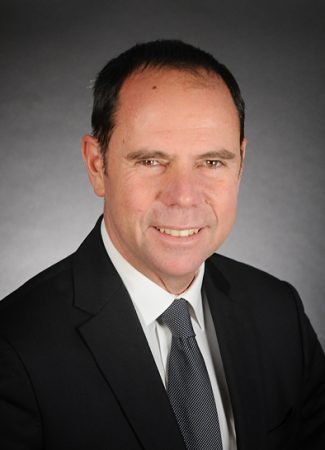Since the beginning of 2020, European gas markets have seen their prices drop to levels not seen since the previous global economic recession back in 2008. The impact of mild temperatures during the 2019/2020 winter season, high levels of wind power generation and nationwide lockdowns forced by the Covid-19 pandemic, resulting in reduced natural gas consumption, all added to an extremely bearish context for gas prices. By way of example, the European TTF DA gas reference index had lost more than 70% of its value during the first five months of the year.
Although gas prices have since recovered and are currently trading at levels close to those seen at the beginning of January, their near future remains uncertain, bearing in mind that natural gas storage levels are at their highest, RES assets deployment continue on the up, and a second wave of the Covid-19 pandemic is already affecting most European countries.
These dynamics, which have already lead to the implementation of negative gas prices on Powernext gas platform, may have multiple repercussions on the players in the energy market, all the more so as sustainable price reductions are expected to result from the combined policies of the European Union and the United States on LNG.
European TTF DA gas prices, which had started off the year settling at €11.79/MWh, nosedived to reach a low of €3.40/MWh at the end of May 2020. In a scenario never seen before, a number of factors “conspired” to shake the European gas markets.
Temperatures: winter seasons in Europe are seeing temperatures become milder due to Climate Change. And the 2019/2020 period was no exception: heating degree days fell by more than 5% y-o-y, hence reducing gas requirements for heating consumption.
Renewables generation: wind power production, both on-shore and off-shore, was significantly higher than during the previous winter. In fact, additional deployment of wind power assets combined with healthy windy weather conditions resulted in these assets seeing their production increase by more than one third y-o-y across Europe. This, in turn, meant that the need for thermal power plants production, including gas-fired ones, was significantly reduced.
Covid-19 pandemic: nationwide lockdowns in various European countries between 11 March and 31 May led to a steep fall in natural gas consumption, namely due to lower demand in both the industrial and power sectors. Note here that electricity consumption across Europe decreased by an estimated 12%, and especially affected gas-fired power generation, which fell by more than 20% during the same period. Meanwhile, industrial gas demand, for its part, was down by more than 15% y-o-y.
Gas storage: storage levels across Europe were almost at full capacity. This resulted from both healthy pipeline supply and LNG deliveries combined with rather reduced injection requirements.
Finally, the behaviour of both oil – still a reference for gas contracts in spite of shale gas and LNG –, and EUAs prices – which determine the merit order of coal and gas-fired power plants –, also played a significant role in this bearish trend observed in gas prices. While both commodities had already shown a downward trend since the start of the year, such pattern was only exacerbated by the influx of the pandemic, with Brent closing at an historical low of USD19.33/bbl on 14 April for June delivery, and EUA Dec20 contract settling at EUR15.30/Tn on March 18.
As we can see, different factors have mastered a perfect complot to throw gas prices into the abyss. The question now, of course, is: what do gas prices hold in store for us, with the new gas year only just started and a second wave of the pandemic already showing its effects worldwide?
With world gas prices now on the up with the approach of winter, the market questioned the possibility of negative gas prices arising as European storages were almost full, uncertainties remain about the recovery of demand and concerns persist about a second wave of Covid-19 cases.
In Europe, EEX decided to enable trading of negative gas prices and explains that it wants to prepare for “any market scenario that may occur in the future”. In the previous months, usage of Ukrainian storage capacities has most probably avoided “almost” negative price episodes.
These consecutive drops in gas prices are no longer exceptional situations. Spot prices for natural gas from the Permian Basin also fell to negative levels on more than one occasion last year, due to a boom in the associated gas production, which could not be evacuated due to a lack of outlet.
It should be noted that the oil extraction goes (especially on the American fields) hand in hand with a fatal production of gas, an increasing part of which is exported in the form of LNG. It is for such reason that, according to a study conducted by the Environmental Defense Fund in the US, while small private American drillers tend to flare most of the gas they produce in the Permian, large publicly listed companies such as Chevron or Exxon Mobil, which are increasingly integrating the environmental dimension, are trying to practice less and less flaring (even though 2019 was a record year for flaring),and more and more export instead.
On the other hand, Europe intends to increase its LNG supply. In February 2016, the European Commission published its sustainable energy package which included a number of measures designed to increase the EU´s energy security of supply. This package includes an LNG strategy, which aims to make Europe, often described as a market of “last resort” for LNG exports, an attractive region to enhance its security of supply and competitiveness. In this context, the emergence of the FSRU (Floating Storage and Regasification Unit) technology for processing LNG has helped Lithuania, for example, to increase the diversity of its supply and its competitiveness, resulting in a reduction of gas price on the Lithuanian market of around 23%.
The American authorities are pushing in this direction: ” What we want to do is to continue to encourage countries to be open to diversification goals, build the infrastructure necessary to transport energy across Europe and once that happens, even if they choose to purchase from Russia in the longer term, they’ll be better off because their citizens will pay less” they said in February 2020.
Hence, with the combined EU and US LNG policies, we could see a downward trend in gas prices in the Old Continent.
We can imagine many players taking advantage of these low prices. As for potential negative prices, players such as fertilizer manufacturers or those in the power-to-gas sector – who could absorb excess natural gas by transforming it into electricity, which would be transformed into hydrogen that could be reinjected into the natural gas grid – could pull their strings. For the latter category, this should be possible if the EU were to revise its hydrogen policy, which currently excludes the possibility of manufacturing it via natural gas.
Developments in the energy sector in recent years suggest that the price of gas is becoming increasingly disconnected from oil prices, but Petroleum Rex is still leading Gasosaurus to the dance.
Michaela Sternhagen
Ibrahima Baldé






